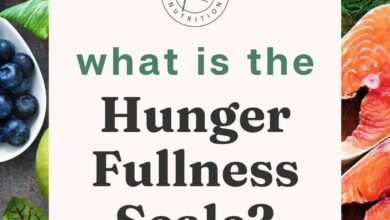Nutrients to Alleviate Anxiety – Nutrition Therapy Institute

We’ve all experienced it to some degree – jitteriness before giving a talk, clammy hands and a racing heartbeat before a first date, or perhaps worrying about a loved one. But when anxiety becomes so prominent that it takes the front seat of one’s life, it can evolve into disorder. And in such a fast-paced world, it’s not surprising that anxiety disorders are the leading type of mental health diagnosis in America. This is why including nutrients to alleviate anxiety in your everyday diet is so important.
Anxiety can be defined as excessive fear reactions triggered by specific objects, situations, or internal and external cues in the absence of actual danger. It often includes an inability to extinguish learned fear.
Symptoms can include the following:
- Irritability
- Difficulty concentrating
- Muscle tension
- Difficulty with falling or staying asleep
- Feeling wound-up, restless, or on edge
- Difficulty controlling worried thoughts
There also exist secondary stress responses to anxiety such as:
- Sleep deprivation
- Lack of movement
- Smoking
- Emotional eating
- Unaddressed trauma
- Chronic stress.
Though anxiety may be treated through prescription drugs in an attempt to address chemical imbalances in the brain thought to be underlying anxiety, dietary changes can also alleviate anxiety symptoms. Lifestyle choices and supplementation can also enhance the ability to alleviate anxiety in a personalized and holistic way. Let’s explore some nutrients that have some of the most research supporting their efficacy in alleviating symptoms of anxiety.
Omega-3 Fatty Acids
Among their many functions, these fats are imperative for the health of cell membranes and for regulating inflammation in the body. In fact, omega-3 fatty acids are deemed essential fats due to the fact that they can only be derived from food.
So what do omega-3s have to do with anxiety? This is where we can let the stressed medical students do the talking. In a double-blind randomized control trial in which a group of medical students who reported stress were given omega-3 supplementation and others were not, the ones receiving the 2.6 gram omega-3 supplements experienced a 14% decrease in inflammatory marker interleukin (IL)-6 and experienced a 20% decrease in anxiety symptoms. On a wider scale, a systematic review and meta-analysis of 19 clinical human trials showed improvement in symptoms of anxiety for those receiving omega-3 fatty acids compared to the placebo. When the trials were separately evaluated based on a threshold dose of 2 grams, the anxiety reduction was only significant for trials evaluating doses of 2 grams per day or higher. Not only is it found to alleviate current symptoms; omega-3 fatty acid consumption may also prevent anxiety from getting worse, based on emerging evidence.
Food Sources for Omega-3’s
There are three main types of omega-3 fatty acids: eicosapentaenoic acid (EPA), docosahexaenoic acid (DHA), and alpha-linolenic acid (ALA). The first two (EPA and DHA) tend to be found in fish. ALA is present in vegetable oils, nuts, and leafy greens. Here are foods with some of the highest amounts of absorbable omega-3 fatty acids:
Magnesium

This major mineral is responsible for hundreds of functions in the body. It works synergistically with calcium and vitamin D to aid in overall bone health, imperative for cell energy, and helps with fluid balance in the body. Magnesium also moderates muscle contractions and nerve conductivity – the likely reason it is reported to relax those who experience anxiety. The World Health Organization estimates that three-quarters of Americans don’t meet the Recommended Daily Value (RDA) of 320-420 mg per day.
Researchers found that mice that were deficient in magnesium demonstrated higher stress responses than those that had adequate levels of the mineral. An analysis of human and animal studies also suggests that magnesium intake can decrease the stress symptoms of anxiety.
Food Sources for Magnesium
This powerful mineral is common in many typical foods in the Mediterranean diet. Since magnesium is a common deficiency, it’s important to consider supplementation in addition to including high amounts of the following foods to achieve adequate levels.
Probiotics
Just as the health of soil directly impacts the health of the plants that grow in it, so does the health of our microbiome impact our overall health – specifically our brain health. The strain Lactobacillus plantarum DR7 has shown a positive correlation with decreased symptoms of stress and anxiety in adults, according to a 2019 randomized, double-blind placebo-controlled study. After taking Lactobacillus helveticus R0052 and Bifidobacterium longum R0175 (PF) for 30 days, adults exhibited decreased global scores of hospital anxiety and depression scale (HADs) – a self-assessment questionnaire used in hospitals. Another study on adults also demonstrated a correlation between taking Lactobacillus plantarum P8 and alleviating symptoms of anxiety and stress, while also improving cognition and memory.
Beneficial Bacteria in Foods
These fermented foods contain Lactobacillus and other potentially beneficial bacteria:
- Greek yogurt (here’s a dairy-free alternative)
- Kefir
- Olives
- Capers
- Fermented vegetables (carrots, cauliflower, green beans, broccoli, radishes)
It is important to note that the levels of beneficial bacteria in fermented foods may not be high enough to provide the adequate effects that supplementation can offer. For a more personalized plan of probiotic supplementation, consider consulting a certified healthcare professional. Here are some other ways to support your microbiome.
A Note on Prebiotics
As a kid, you may not have questioned why worms digest soil (since it probably looked enough like the “dirt” Oreos Mom made in the food processor). But the fact that they’re eating it shows that they had nutrients in the soil to consume. Similarly, our gut bacteria need food to be able to feed and proliferate within our microbiome. We can introduce thousands of bacteria within, but if bacteria don’t have sustainable nutrients, certain strains can get imbalanced and symbiosis within is very difficult to achieve.
Enter: prebiotics. This is the worm’s – or bacteria’s – food. Foods that act as prebiotics tend to contain dietary fiber that can stay in the gut longer and thus be consumed by gut bacteria. The Mediterranean diet is full of fruits and vegetables, which tend to be abundant sources of dietary fiber. Here are some foods which most powerfully act as prebiotics:
- Asparagus
- Garlic
- Chicory
- Jerusalem artichokes
- Apples
Become a Knowledgable Nutrition Resource in Your Community
Do you have the desire to help others and make a positive impact in your community? Become a Nutrition Therapist Master student and NTI and learn many nutritional tools to support those around you who suffer from mental health disorders such as anxiety.
About the author: Lisa (Driscoll) Lopes is a certified Nutrition Therapist Master through NTI’s Nutrition Therapist Master Program. Having studied journalism and vocal performance in undergrad, she enjoys using her voice to share the benefits of living a holistic, integrated lifestyle in writing. You can find more of her writing in the Baltimore Sun, Classical Singer Magazine, Capital News Service, and FOCUS blog.
Images:
Healthy vegetable salad with cherry tomatoes and mix leaves by Florencia Potter from Pexels
Grilled Salmon Fish on Top of Grilled Vegetables by Malidate Van from Pexels
Infographic: Lisa Lopes
Source link
#Nutrients #Alleviate #Anxiety #Nutrition #Therapy #Institute



